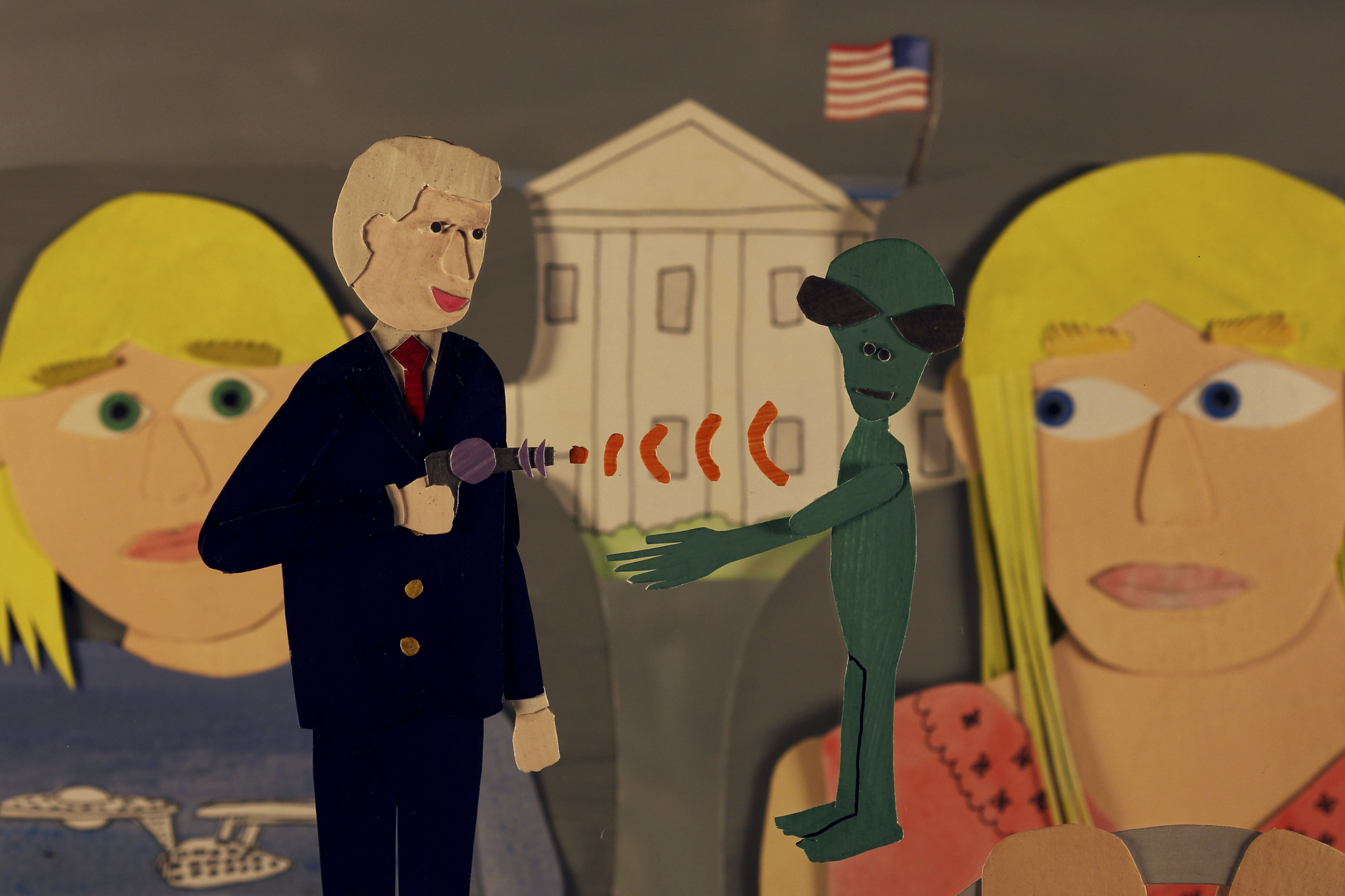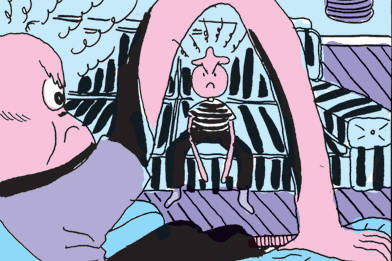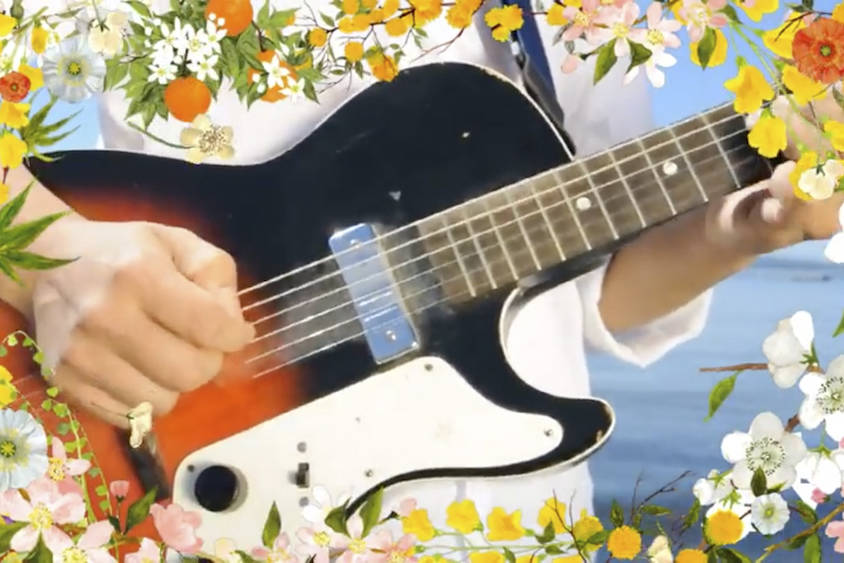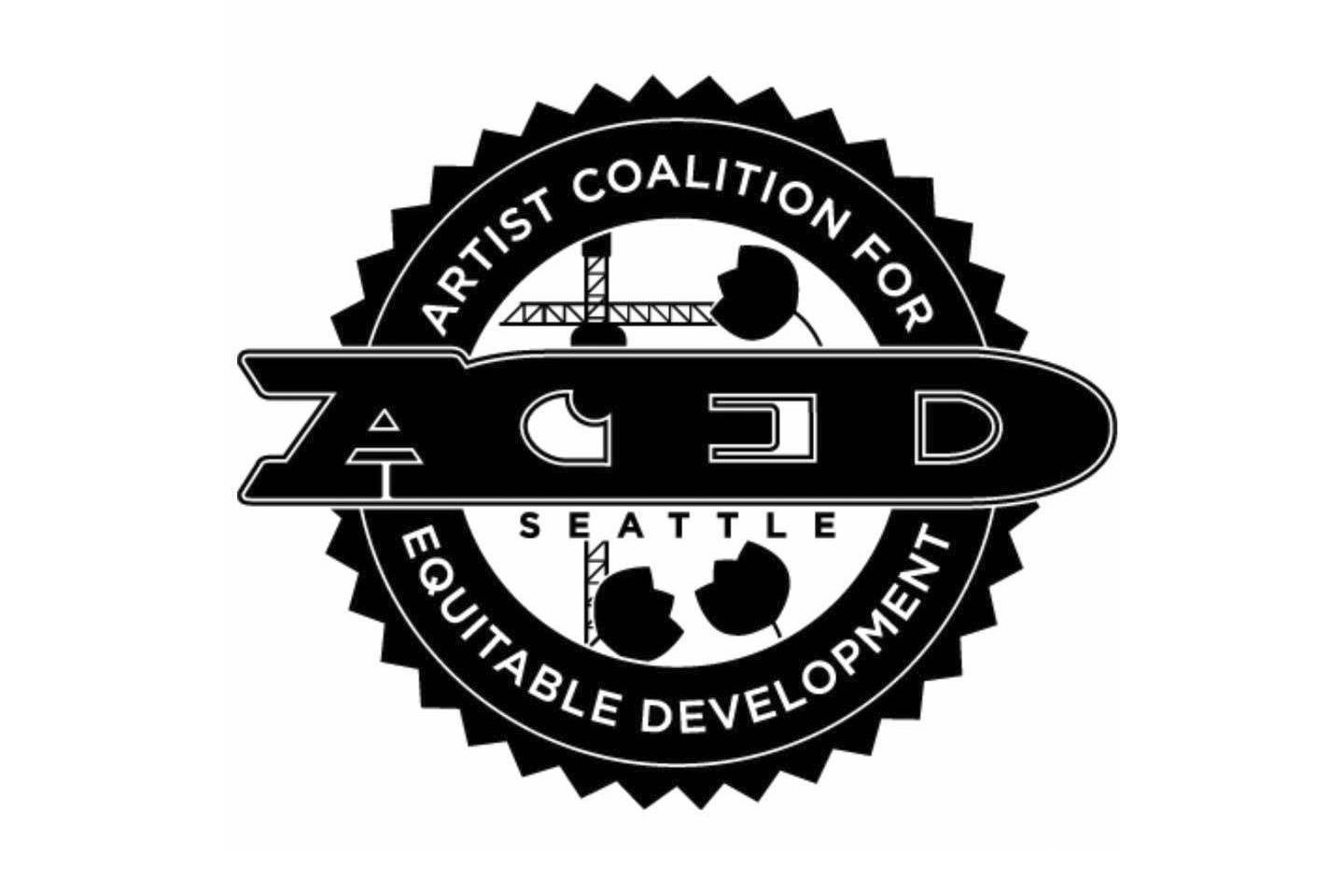 One of the very few spoken words in Seattle animator Clyde Petersen’s new paper-cut, stop-motion feature film Torrey Pines is “butts.” As sampled into a 1985 Casio SK-1, which can record a small bit of audio and pitch-shift it across the keys, the film’s main protagonist, a prepubescent, pig-tailed Petersen, plays the word on the keyboard in his living room to the tune of “Heart and Soul.” There’s a sort of goofy, sacred quietude to the scene, the candid, nostalgic moment between Petersen and the young friend who helps poke out the song’s melody (while wearing a Nevermind T-shirt) ending with a big papery grin and an exchanged glance before suddenly fading to black.
One of the very few spoken words in Seattle animator Clyde Petersen’s new paper-cut, stop-motion feature film Torrey Pines is “butts.” As sampled into a 1985 Casio SK-1, which can record a small bit of audio and pitch-shift it across the keys, the film’s main protagonist, a prepubescent, pig-tailed Petersen, plays the word on the keyboard in his living room to the tune of “Heart and Soul.” There’s a sort of goofy, sacred quietude to the scene, the candid, nostalgic moment between Petersen and the young friend who helps poke out the song’s melody (while wearing a Nevermind T-shirt) ending with a big papery grin and an exchanged glance before suddenly fading to black.
Tonally, Torrey Pines walks a fascinating line. The overarching storyline, taken at face value, might seem tragic: The film is a retelling of a true tale that happened to the 12-year-old Petersen in 1993, which he first publicly recounted in a 2007 song of the same name with his band Your Heart Breaks (who scores the film), accompanied by Kimya Dawson of Juno fame. “How do I tell the story of my mother gone crazy?” the song begins.
Growing up in Del Mar, Calif., Petersen suddenly started noticing strange behavior from his mom—namely, increasingly bizarre government conspiracies about aliens. “As a kid, I didn’t know my mom was schizophrenic,” Petersen says. “It always freaked me out that my mom said Deanna Troi [from Star Trek: The Next Generation] could read my mind. It was one of those weird moments; I was like, ‘Something’s going on in my life and I don’t know what it is.’ ” One day Petersen’s mother decided to take him on a cross-country road trip. She didn’t tell anyone, including his father, living in Seattle at the time, who ended up launching a search for Petersen with the help of Child Protective Services.
“I didn’t really feel like I was being kidnapped,” Petersen says; “I was just a spaced-out kid on a trip with my mom.” The episode came to a sudden halt when Petersen’s mother got into a small car accident in New York and the police ran her plates, discovering the kidnapping reports. “When the cops did finally catch us, and I got taken away from my mom, that was extremely traumatic,” Petersen says. “I had no idea what was happening.”
Coupled with the incoming anxieties of adolescence, made even more confusing by Petersen’s then-blossoming trans identity—these were strange, emotional times. Those struggles with queer identity are treated with quite a bit of levity in the film, however. In one of its most memorable laugh-out-loud scenes, Petersen, seeing his naked mother come out of the shower, suddenly has a vivid dysphoric daymare—drooping breasts spouting from his chest, swinging about and spraying milk, and a bloody, expressionless baby falling out of his groin as a horde of fellow eerie babies scramble from offscreen, jumping at him. “It was a collaborative effort between me and [fellow lead animator] Chris Looney to get uncomfortable and hilarious at the same time,” Petersen says.
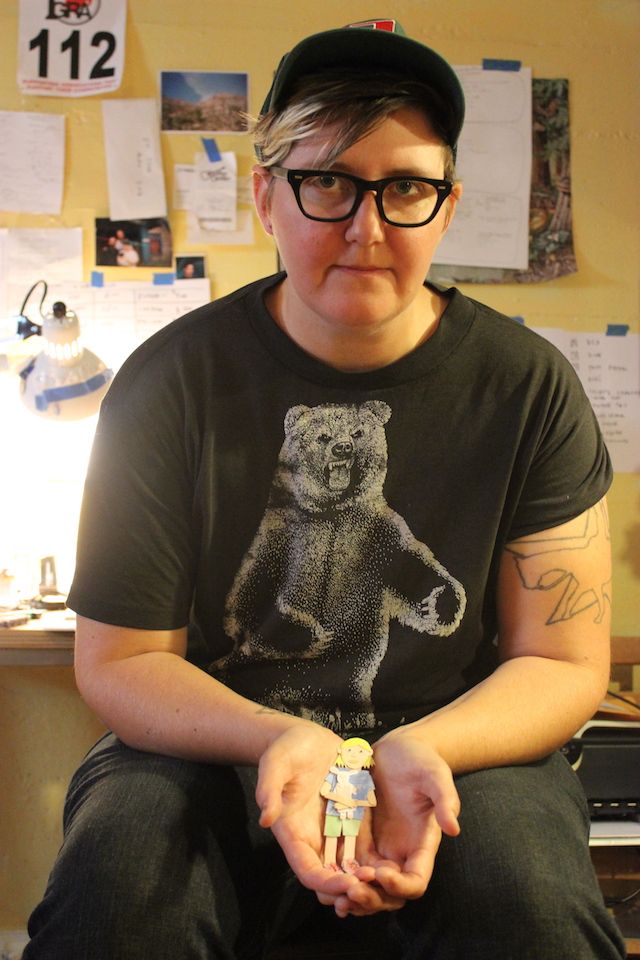
Petersen in his studio, holding mini-Petersen.
Indeed Torrey Pines is not a tragic, sad film. Executed with a healthy heap of wit and psychedelia (Petersen’s vivid childhood imagination and his mother’s schizophrenic visions manifest side by side throughout), it’s actually a deftly crafted entry in the small cinematic lineage of “ambient” films. Throughout his career, Petersen has mostly animated within the confines of the music video, pumping out countless three- to four-minute stop-motion pieces for bands like the Thermals, Deerhoof, and Thao & the Get Down Stay Down. In his first feature film, Petersen takes full advantage of the breathing room afforded by the extended run time—a move partially inspired by Tape Loops, the 2015 ambient solo record from former Death Cab for Cutie guitarist Chris Walla, who recorded Torrey Pines’ soundtrack. Petersen isn’t afraid to really linger on a moment, an inkling that fully blooms during the road-trip (or kidnapping) portion of the film.
“This is going to sound cheesy, but I’m really in love with America,” Petersen says. “I wanted to make sure the land in this weird fucking country was well-represented in the film.” Torrey Pines is full of gorgeous, slow pans across colorful paper-cut American landscapes—giving viewers time to soak in every tree, mountain, telephone pole, Christian crackpot billboard, highway strip club, and hilarious, bleating roadside animals.
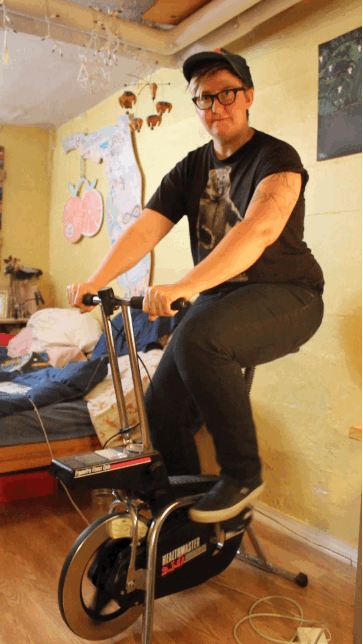 That pervasive meditative feeling is buoyed by Petersen’s decision to go wordless, inspired by American sign-language classes he took a few years ago. “I wanted to make a movie that could cross the language barrier without subtitles,” he says, “or that can speak to an audience who can’t hear.” Petersen’s characters all talk in gobbledygook reminiscent of The Sims. At the suggestion of Zach Burba, a member of Your Heart Breaks, many of the adults’ garbled voices were recorded through a saxophone, just like the teachers’ voices in Peanuts cartoons were recorded. The device gets played for some killer laughs, especially during a scene at a Whitney Houston concert in Oklahoma, where the diva, voiced by Kimya Dawson, gives a passionate, soulful mushmouth performance: huh, uh, hm hm, myuuuuh!
That pervasive meditative feeling is buoyed by Petersen’s decision to go wordless, inspired by American sign-language classes he took a few years ago. “I wanted to make a movie that could cross the language barrier without subtitles,” he says, “or that can speak to an audience who can’t hear.” Petersen’s characters all talk in gobbledygook reminiscent of The Sims. At the suggestion of Zach Burba, a member of Your Heart Breaks, many of the adults’ garbled voices were recorded through a saxophone, just like the teachers’ voices in Peanuts cartoons were recorded. The device gets played for some killer laughs, especially during a scene at a Whitney Houston concert in Oklahoma, where the diva, voiced by Kimya Dawson, gives a passionate, soulful mushmouth performance: huh, uh, hm hm, myuuuuh!
In October, Torrey Pines is set to open the TWIST: Seattle Queer Film Festival, where it will be shown twice—once with its prerecorded soundtrack, and once, at the opening, with a live score from Your Heart Breaks, the Beaconettes choir, and in-person Foley sound effects. “It feels weird spending so much time on something and then just being like ‘Go have fun at that film festival .MOV file!’ ” Petersen says—part of the reason he’s decided to take a hands-on approach and tour the country, performing live scores with the band at 50-plus screenings. After that, it’s on to the next feature film.
“I already have two more movies I want to make,” Petersen says. “I’ve used up my community Kickstarter support on Torrey Pines and it’s been gratefully received and acknowledged, so next time maybe I’ll try to find some rich fucker.” Twist: Seattle Queer Film Festival, twistfilmfest.org, Oct. 13-23.
ksears@seattleweekly.com
